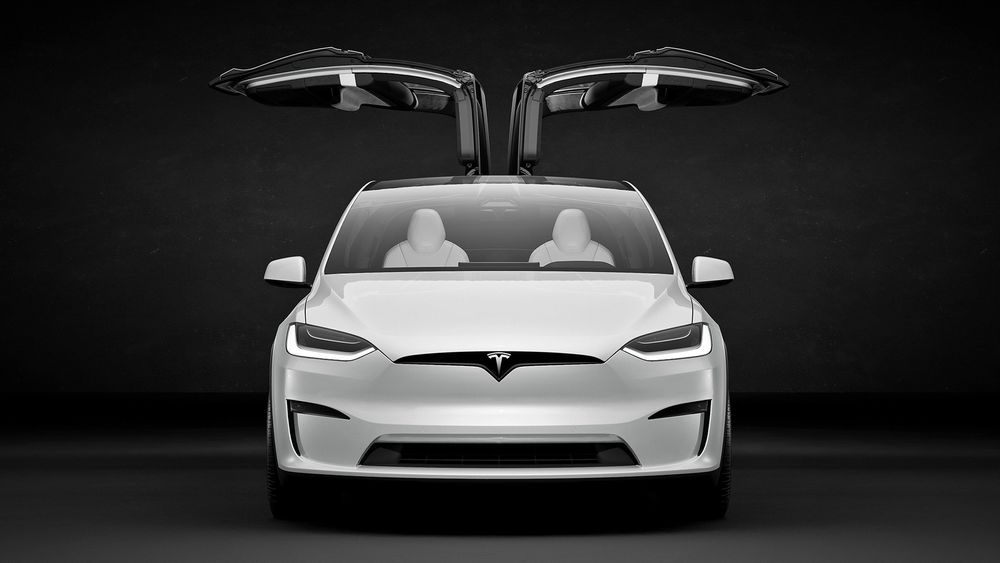Introduction to Tesla and its Mission
Tesla is not just a car manufacturer; it’s a movement. Founded by the visionary Elon Musk, Tesla has redefined what it means to drive in the 21st century. With its sleek design and cutting-edge technology, owning a Tesla car symbolizes more than just luxury—it embodies a commitment to sustainability and innovation. As we navigate an era where climate change is at the forefront of global discussions, Tesla’s mission shines brighter than ever: to accelerate the world’s transition to sustainable energy.
But what does driving a Tesla really mean for you? Beyond its futuristic features and impressive performance, there are profound benefits that extend into our daily lives and the environment around us. Let’s explore how this revolutionary vehicle impacts not only your commute but also contributes significantly to creating a cleaner planet.
Benefits of Owning a Tesla Car
Owning a Tesla car comes with an array of benefits that extend beyond just transportation. One of the most notable advantages is the instant torque provided by electric motors. This means rapid acceleration, offering a thrilling driving experience.
The cost savings on fuel are significant as well. With electricity often being cheaper than gasoline, many owners enjoy lower monthly expenses. Plus, Teslas require less maintenance compared to traditional vehicles since they have fewer moving parts.
Access to exclusive features like Autopilot enhances convenience and safety on the road. Navigating through traffic becomes easier when your car can assist in steering, braking, and accelerating automatically.
Another perk is the strong community backing Tesla drivers receive. Joining this innovative group opens doors to events and shared experiences with fellow enthusiasts who value sustainability and cutting-edge technology.
Environmental Impact of Tesla Cars
Tesla cars are at the forefront of the electric vehicle revolution. They offer a cleaner alternative to traditional gasoline-powered vehicles. This shift significantly reduces air pollution, benefiting both urban and rural environments.
One of the most profound impacts is their contribution to lowering greenhouse gas emissions. As more people embrace Tesla’s technology, we see a decline in reliance on fossil fuels. Each Tesla on the road represents fewer carbon emissions released into our atmosphere.
Additionally, Tesla’s commitment extends beyond just manufacturing vehicles. The company promotes renewable energy solutions through solar products and battery storage systems. This holistic approach creates a synergy that amplifies positive environmental effects.
By adopting sustainable practices, including ethical sourcing of materials for batteries, Tesla sets industry standards that encourage other automakers to follow suit. This shift toward sustainability can lead to healthier ecosystems globally, showcasing how electric cars can pave the way for greener living spaces.
Reduction in Carbon Emissions
Tesla cars represent a significant shift towards sustainable driving. Unlike traditional gasoline vehicles, they run purely on electricity. This shift directly translates to lower carbon emissions.
Electric cars produce no tailpipe emissions during operation. By replacing fossil fuel-powered vehicles with Teslas, we can drastically cut greenhouse gases released into the atmosphere.
Moreover, Tesla’s commitment to renewable energy sources further amplifies this reduction. Charging stations often utilize solar power, making the entire lifecycle of ownership more eco-friendly.
The ripple effect is profound. As more people choose Tesla over conventional options, the collective impact contributes to cleaner air and a healthier planet for future generations.
Transitioning to electric not only benefits individual drivers but also aligns with global efforts to combat climate change. Each mile driven in a Tesla signifies progress toward a more sustainable future.
Economic Benefits of Tesla Cars for Consumers
Owning a Tesla car can lead to significant economic advantages for consumers. One of the standout benefits is reduced fuel costs. With electricity often being cheaper than gasoline, many Tesla owners enjoy lower monthly expenses.
Maintenance also tends to be less frequent with electric vehicles. Fewer moving parts mean fewer repairs and replacements, translating to savings over time.
Additionally, some regions offer tax incentives for electric vehicle purchases, making that initial investment more appealing. These credits can help offset the cost of buying a new Tesla car.
Insurance rates may also differ favorably compared to traditional vehicles. As safety features in Teslas are advanced, premiums could be lower due to decreased accident rates.
As technology evolves and charging infrastructure improves, owning a Tesla becomes even more economically sound in our daily lives.
How Tesla Cars are Changing the Automotive Industry
Tesla cars are revolutionizing the automotive industry like never before. With a commitment to electric power, they challenge the traditional gas-powered models that have dominated for decades.
Their innovative technology sets new standards in performance and efficiency. The instant torque provided by electric engines delivers an exhilarating driving experience, attracting enthusiasts and everyday drivers alike.
Furthermore, Tesla’s Autopilot feature is reshaping our perception of car safety and convenience. By integrating advanced AI with driving capabilities, it pushes manufacturers to rethink how vehicles can assist us on the road.
The company’s direct-to-consumer sales model disrupts traditional dealership frameworks. This shift empowers buyers while streamlining the purchasing process.
As other automakers scramble to catch up, Tesla remains at the forefront of sustainable practices in manufacturing and materials sourcing. Their influence encourages broader adoption of eco-friendly technologies across the entire industry landscape.
Future of Tesla and Sustainable Transportation
The future of Tesla is bright and innovative. As the company continues to push boundaries in electric vehicle technology, it aims to redefine sustainable transportation.
Tesla’s focus on expanding its battery production will enhance efficiency and reduce costs. This shift could make electric vehicles accessible to a broader audience. The developments in battery technology promise longer ranges and faster charging times.
Moreover, Tesla’s commitment doesn’t stop at cars. The introduction of solar energy products aligns with their vision for an integrated sustainable ecosystem. By harnessing renewable energy, they’re paving the way for a greener future.
Autonomous driving technology is another frontier Tesla is exploring. Imagine a world where self-driving vehicles optimize traffic flow while minimizing emissions. Such advancements could revolutionize urban mobility.
As regulations tighten around carbon emissions globally, Tesla stands poised as a leader in fostering change within the automotive sector and beyond.
Conclusion
The Tesla car revolution is more than just a trend; it’s shaping the future of transportation. As consumers embrace electric vehicles, they are also making a bold statement about sustainability.
With every journey in a Tesla, owners contribute to reducing harmful emissions and promoting cleaner air. The shift towards renewable energy sources for charging further amplifies this positive impact.
Tesla’s innovation extends beyond vehicles. It inspires other manufacturers to rethink their strategies and push for greener alternatives. This ripple effect can lead to significant changes across the entire automotive landscape.
As we move forward, the integration of technology and eco-consciousness will only deepen. Each new model brings advancements that elevate both performance and environmental stewardship.
Embracing Tesla means participating in a larger movement toward sustainable living—one where each drive matters not just for today but also for generations to come.



Pingback: Janitor AI: Transforming Facility Management